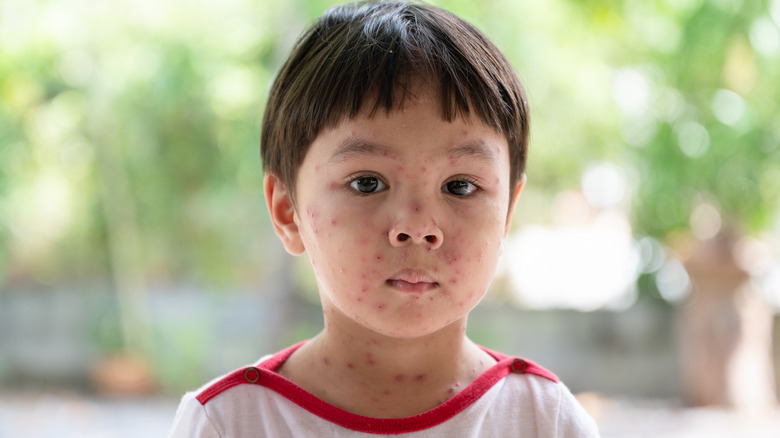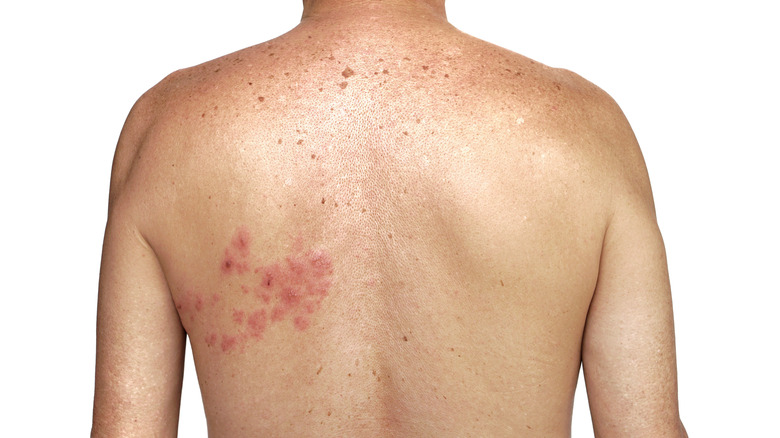The Real Difference Between Chickenpox And Shingles
When it comes to itchy, painful skin conditions, nothing compares to chickenpox and shingles. Both diseases are marked by painful bumps that blister. While both diseases are caused by the varicella-zoster virus, they do have some differences worth noting.
Chickenpox, while uncomfortable, is considered mild, and children are more at risk for developing it. The disease is highly contagious and is known for its itchy, pus-filled blisters that can cover the entire body. Usually, the blisters occur around 10 to 21 days after exposure. The condition has three recognized stages, with the first being the appearance of raised pink bumps on the skin. In the second phase of chickenpox, the bumps fill with fluid, and sometimes break open. Scabs form over the bumps in the final stage, which takes several days to heal. Other symptoms of the virus include a headache, fever, and fatigue. The rash lasts around a week (via Mayo Clinic).
Shingles affects the nervous system and is more common in adults
Shingles is considered more serious than chickenpox because it can affect your nervous system, resulting in postherpetic neuropathy. People who get shingles had chickenpox as a child. The virus can remain dormant for years, and some people who had chickenpox as a child will never come down with it. In fact, only one out of every three adults will never deal with shingles. Generally, a compromised immune system can activate the virus, and most cases are in adults over the age of 50 (via Healthline).
Shingles begins with a tingling sensation that becomes a painful rash. Like chickenpox, shingles can turn into painful blisters. However, shingles don't cover the entire body. An outbreak generally occurs on one side of the torso. Sometimes, it appears on the neck and face. If it does form on the face or neck, complications with vision and hearing can occur, especially if it is not treated, so it is important to seek medical attention.
While shingles is not contagious, a person who has never had chickenpox can catch chickenpox from being exposed to someone with shingles. Individuals vaccinated against chickenpox as children are protected from the disease as adults.


